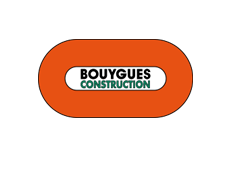Bouygues Construction sets up a research and teaching chair in "Sustainable Building and Innovation"
In a partnership with the Ecole des Ponts ParisTech and the Fondation des Ponts, the Ecole Centrale Paris and Centrale Paris Développement, Supelec and the Supelec Foundation and the CSTB (the French Scientific and Technical Centre for Building), Bouygues Construction has established a Research and Teaching Chair specialising in sustainable construction and innovation.
Yves Gabriel, Chairman and Chief Executive Officer of the Group, yesterday signed a five-year partnership agreement to provide funding that allowed the Chair to be created.
The Chair is dedicated to the theme of "Building Sustainably and Innovating" and is intended to promote work by researchers and doctoral candidates in three key areas:
- Low-carbon technologies (materials and products, innovative structures and envelopes, application of renewable energies)
- Sustainable buildings (energy efficiency, environmental performance and life cycle analysis, health and comfort of users, whole-life cost approach, digitisation in design, computation and simulation, and the elaboration of a concept building).
- Sustainable neighbourhoods and towns (interfaces between buildings and networks).
The various partners' contributions to the Chair relate to their specific areas of competence and includes the involvement of their specialised departments and laboratories:
Ecole des Ponts ParisTech
- Mechanics and physics of materials (new materials and developments in concrete)
- IMAGINE research team (3-D modelling applied to the city)
Ecole Centrale Paris
- Teaching of mechanical engineering, civil engineering, town planning, sustainable construction (thermal and acoustic performance of buildings, low-consumption buildings, etc.)
- Industrial engineering (methodology, tools and models contributing to eco-design)
- Applied mathematics (virtual reality and digitised models)
Supelec
- Automatism of hybrid systems (management of the energy and thermal installations of buildings)
- Electronics and energy systems (renewable energies, positive energy buildings)
- Electronic signals and systems (modelling energy consumption and managing installations)
- Automatism (predictive thermal control of buildings)
- Paris Electrical Engineering Laboratory (efficiency of photovoltaic panels and fuel cells)
The CSTB is responsible for organising the Chair and will carry out scientific research projects on the three key themes that have been singled out: low-carbon technologies, sustainable buildings, and sustainable neighbourhoods and towns.
By setting up this Chair, Bouygues Construction will be able to put the concepts of the various laboratories concretely into application. This will result in a virtual "concept building" boasting cutting-edge technology. Bouygues Construction also intends to enrol its employees working in high-level technical and scientific networks in the field of sustainable construction. The Chair will also make it possible to extend the training of its engineers in this field by way of continuing education modules delivered by acknowledged experts.
Confronted by the energy and environmental challenges that are specific to its businesses, the Group has been committed since 2007 to a pragmatic and comprehensive policy which it applies to the design, construction and operation of buildings and structures. This policy reflects the Group's ambition of being a leader in sustainable construction.
